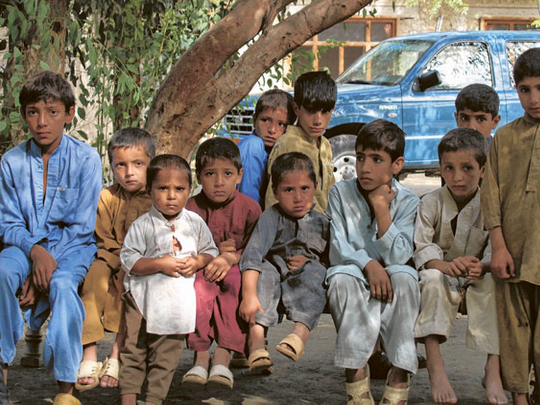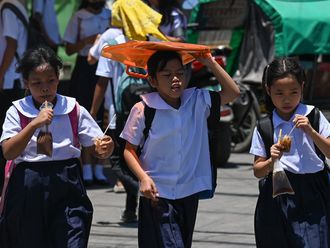
Jalalabad: With every water supply project that the Danish Committee for Aid to Afghan Refugees (Dacaar) undertakes, hygiene education is carried out as an integral part of each project.
The aim of hygiene education is to promote the benefits of safe water, sanitation and personal hygiene, and how the health of one person can impacts others.
For cultural reasons, male teachers give hygiene lessons to men and boys, while female teachers give lessons to women and girls.
"This is our culture," Haji Ameen, Provincial Manager for Dacaar in Jalalabad, said.
"Men cannot give messages to women, and women cannot give messages to the men. This is a culture of all Afghanistan people".
Gulf News attended both a men's and women's hygiene education lesson near Jalalabad city, in the Nangahar province.
The lessons were similar, although the women's lesson was more focused on hygiene during preparing food and care for children as women are the main child carers in the country. Due to cultural sensitivities, no cameras were allowed during the women's lesson.
Educators spreading the hygiene message among communities need to be a married couple from the area in which they are working, for a number of reasons.
Top reasons
Firstly, they need to have knowledge of the local language and customs. Secondly, it's important to target women and children with hygiene messages, because they are the primary collectors and users of water, so one educator needs to be a woman.
Community acceptance is essential: hygiene promotion carried out by couples is a culturally-sensitive method that enables the female teacher/spouse to travel, as she is accompanied by her husband.
A woman travelling on her own would not be acceptable among the communities and so the lessons would not be effective.
Sanitation messages include the importance of using latrines and night soil disposal for example; food safety messages include heating up stored food properly; and rehydration therapy to treat diarrhoea includes a demonstration on how to prepare the rehydration solution WSS (water-salt-flour solution) in the absence of ORS (oral rehydration salts).
Dacaar also distributes hygiene messages in schools, mosques, door-to-door, on household visits and as radio dramas (in local languages) aired on radio and recorded on MP3 players played on education visits.
In more traditional villages, the mobilisation of mullahs and elders along with the use of passages from the Quran are sometimes used to achieve acceptance.












